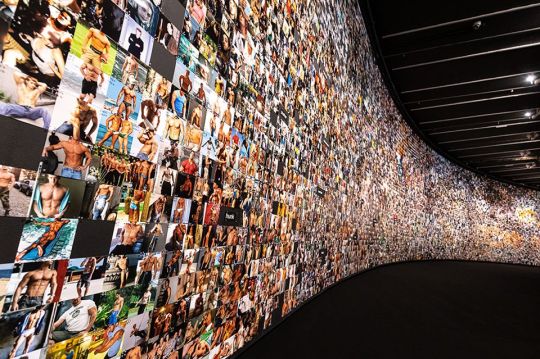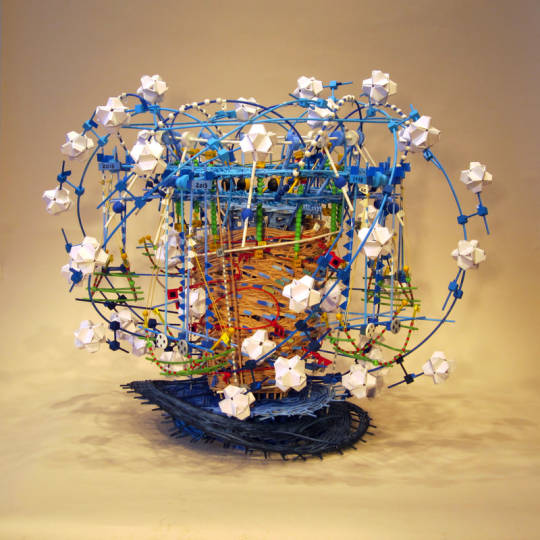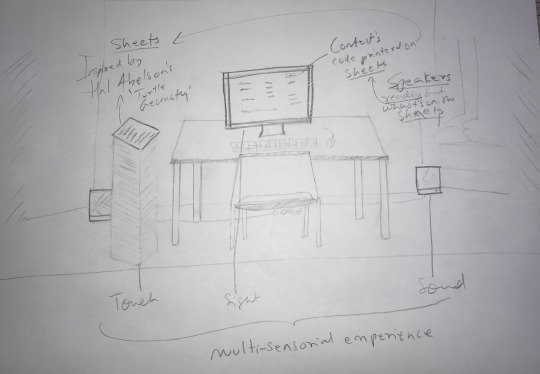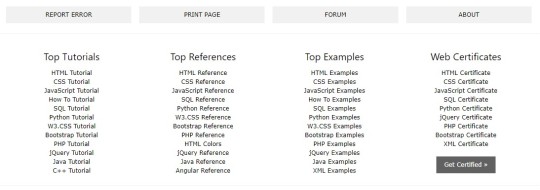#'white women' is used as covert sexism now but white women are going down the alt right pipeline just like white incel men!!!
Explore tagged Tumblr posts
Text
i think im losing my empathy for these women who go down the alt right pipeline. dni red scare listeners
#'white women' is used as covert sexism now but white women are going down the alt right pipeline just like white incel men!!!#its just so disheartening. like there are so many people out there who straight up hate people who look like me. and they call it irony#and they're WOMEN!!! theyre women :(
22 notes
·
View notes
Text
elsewhere on the internet: talking about racism
This set of articles has been languishing at the back of the queue for three years!
Political Correctness Wanted Dead or Alive: A Rhetorical Witch-Hunt in the US, Russia, and Europe
Anna Szilagyi (2016, Talk Decoded)
Possibly the most common way of attacking political correctness, is to label it “tyrannical”. Covert speech strategies may also support this construction. For instance, anti-PC politicians often utilize adjectives for fear (including “afraid”, “frightened”, “scared”, “terrified”) to describe how PC affects the behavior and feelings of people. The former leader of the UK Independence Party, Nigel Farage claimed: “I think actually what’s been happening with this whole politically correct agenda is lots of decent ordinary people are losing their jobs and paying the price for us being terrified of causing offence.” Suggesting that the British are “terrified” because of political correctness, Farage urged his listeners to think of PC in terms of intimidation.
At the same time, the fearsome vocabulary provides a background for anti-PC populists to present themselves as “brave” and “courageous” “saviors” of their “victimized” societies. The next quote by Nigel Farage exemplifies this trend: “I think the people see us as actually standing up and saying what we think, not being constrained or scared by political correctness.” In a similar fashion, Geert Wilders declared: “I will not allow anyone to shut me up.”
Why White People Freak Out When They’re Called Out About Race
Sam Adler-Bell (2015, Alternet) @SamAdlerBell
Sam Adler-Bell: How did you come to write about "white fragility"?
Robin DiAngelo: To be honest, I wanted to take it on because it’s a frustrating dynamic that I encounter a lot. I don’t have a lot of patience for it. And I wanted to put a mirror to it.
I do atypical work for a white person, which is that I lead primarily white audiences in discussions on race every day, in workshops all over the country. That has allowed me to observe very predictable patterns. And one of those patterns is this inability to tolerate any kind of challenge to our racial reality. We shut down or lash out or in whatever way possible block any reflection from taking place.
Of course, it functions as means of resistance, but I think it’s also useful to think about it as fragility, as inability to handle the stress of conversations about race and racism
Sometimes it’s strategic, a very intentional push back and rebuttal. But a lot of the time, the person simply cannot function. They regress into an emotional state that prevents anybody from moving forward.
...
RD: I think we get tired of certain terms. What I do used to be called "diversity training," then "cultural competency" and now, "anti-racism." These terms are really useful for periods of time, but then they get coopted, and people build all this baggage around them, and you have to come up with new terms or else people won’t engage.
And I think "white privilege" has reached that point. It rocked my world when I first really got it, when I came across Peggy McIntosh. It’s a really powerful start for people. But unfortunately it's been played so much now that it turns people off.
The Language of “Privilege” Doesn’t Work
Stephen Aguilar (2016, Inside Higher Ed) @stephenaguilar
I believe that “privilege” is a sterile word that does not grapple with the core of the problem. If you are white, you do not have “white” privilege. If you are male, you do not have “male” privilege. If you are straight, you do not have “straight” privilege. What you have is advantage. The language of advantage, I propose, is a much cleaner and more precise way to frame discussions about racism (or sexism, or most systems of oppression).
... does giving up a “privilege” seem incoherent? It might, because generally privileges are given and taken by someone else. They are earned, and are seldom bad things to have.
Now try shifting your language to that of advantages. Ask yourself, “What advantages do I have over that person over there?” That question is much easier to answer and yields more nuanced responses.
Kimberlé Crenshaw on intersectionality
Bim Adewunmi (2014, New Statesman) @bimadewunmi
“I wanted to come up with an everyday metaphor that anyone could use”
“Class is not new and race is not new. And we still continue to contest and talk about it, so what’s so unusual about intersectionality not being new and therefore that’s not a reason to talk about it? Intersectionality draws attention to invisibilities that exist in feminism, in anti-racism, in class politics, so obviously it takes a lot of work to consistently challenge ourselves to be attentive to aspects of power that we don’t ourselves experience.”
...
“Sometimes it feels like those in power frame themselves as being tremendously disempowered by critique. A critique of one’s voice isn’t taking it away. If the underlying assumption behind the category ‘women’ or ‘feminist’ is that we are a coalition then there have to be coalitional practices and some form of accountability.”
The Persecution of Amy Schumer: Political Correctness and Comedy
Teo Bugbee (2015, Daily Beast)
We have developed highly advanced ways of recognizing and articulating when we feel offended, but very few ways of making something productive out of our own hurt feelings.
I’ve questioned if my choice to overlook what’s hurtful in Schumer’s comedy for the sake of what’s insightful is a sign that I’m complicit in the faults of white feminism, not valuing the importance of others’ feelings on this matter enough. This argument of apathy gets used often on social media to raise awareness around issues of race, sex, gender, and other topics surrounding justice and a need for change, and it is often useful, but it can also be a blunt instrument. Where I’ve landed for the moment is that not all marginalized people feel the same way about every issue—even on social media, but especially outside it—and asking everyone to respond in the same way to the same joke takes a simplistic view that flattens the complexity of marginalized communities just as much as it does the white, cisgender mainstream.
However, if we’re going to ask audiences to keep in mind the multiplicity of responses that a person might have to a work of art before they attempt to control someone else’s opinion, then it’s only fair that comedians follow the same rule.
What’s Wrong (and Right) in Jonathan Chait’s Anti-P.C. Screed
J. Bryan Lowder (2015, Slate)
One of the main problems with the constellation of leftist ideas he bemoans is that many of the people who use them most loudly do so out of context. Concepts like “microaggressions,” “trigger warnings,” and “mansplaining” originally had specific meanings and limited uses, often within the academy. They described or were meant to address specific situations or phenomena, and more important, they were intended to function as diagnostic tools of analysis, not be used as blunt, conversation-ending instruments. Believe it or not, most of these “PC buzzwords” are actually useful from time to time: “Straightsplaining” is a real (and very annoying) thing, and it’s often a productive way of thinking about an interaction. But it’s also not always a useful or fair way to characterize a disagreement between a queer person and a straight interlocutor. Precision is what’s needed.
Additionally, though it is impossible to say this without sounding condescending myself, a lot of the abuse of PC rhetoric comes from young college students who have not yet grasped the difference between a measuring tape and a sledgehammer. Of course, given that contemporary mainstream politics offers little for those hopeful souls who want to make truly radical change in the world, you can’t really blame them for gravitating toward a mode of critique that at least feels somewhat empowering. Here, first-year, is a framework by which you can reveal the (screwed-up) hidden structures of the world and use your newly honed textual close-reading skills to mount offenses against those structures—go for it. What works on a novel doesn’t necessary translate to a complicated, changeable human being, though, so it’s no surprise that the deployment of microaggression and cissexism and other social justice lingo can sometimes come off as strident and simplistic. It often is.
But then, so is crying that only Reason can save us from the illiberal wolves waiting in the wings of our great system, which has a “glorious” history on social justice, by the way.
Want To Help End Systemic Racism? First Step: Drop the White Guilt
Sincere Kirabo (2015, thehumanist)
The point of identifying and exposing inconsistencies within the social systems and cultural norms of the United States isn’t to make whites feel guilty, but to garner greater empathy that will inspire change. The main problem with white guilt is that it attempts to diminish the spotlight aimed at issues germane to marginalized groups and redirects the focus to a wasteful plane of apologetics and ineffective assessment.
This is why some don’t like discussing racism, as those more sensitive to these matters sometimes allow guilt to creep into their thought processes, effectively evoking pangs of discomfort. This can lead to avoidance of the primary issues altogether, as well as the manifestation of defense mechanisms, including denial, projection, intellectualization, and rationalization.
Many are acquainted with the concept of Catholic guilt. Catholic doctrine emphasizes the inherent sinfulness of all people. These accentuated notions of fault lead to varied degrees of enhanced self-loathing. I liken white guilt to Catholic guilt: both relate to a sense of inadequacy emanating from misguided notions. Though the latter is anchored in an imagined source, they both speak to feelings of remorse and internal conflict that does the individual having them no good.
Keep in mind that the call to “recognize your privilege” does not translate to “bear the blame.”
3 notes
·
View notes
Text
Planning
Data can be seen as points of knowledge that we all have. How we see things is based on past experiences from which we pick up points against which we assess all that comes along. Those points can be seen as data points. The world, in many western countries, is built on a hierarchy of the white-hetero-patriarchy. How would the reverse of it look? Trevor Paglen’s Barbican’s Curve installation featured images of each category like Investor, Pizza, Apple, and so on, from a specific data set, called ImageNet, which was created by professors at Stanford University and Princeton University in the US. These professors created categories using a dictionary called WordNet created at Princeton University and used the definitions there to illustrate what was thought represented the categories.

Figure 1: Trevor Paglen's Curve installation at the Barbican
My project will look at what if intersectionally subordinated groups of people—with subordination by the intersection of racism, classism, ableism, (skin-) colorism, agism…— created the categories instead of middle- and upper-class white-hetero-patriarchal people. (White in terms of traditional structures built by white men.) what if the conception of these subordinated groups defined what shaped the world?
Final product research and plan
I looked extensively into most of Trevor Paglen’s work, elaborated in this blog earlier. His work is in the form of mostly eerie photography of the arcane intelligence outposts of the US. He tracks the places through thousands of censored documents released by his Govt. and finds the locations where they carry out their covert operations; alternatively, through satellite data, the location of other covert operations where the US is the dominant power, like the UK.

Figure 2: NSA GCHQ, Surveillance Base, Cornwall, UK, 2015 by Trevor Paglen
In the above image, we see one of Paglen’s spectacular images of a US surveillance base in the UK.

Figure 3: untitled, Reaper Drone, 2010 by Trevor Paglen
In figure 3, is another work that looks at surveillance drones, but again the image itself does not exclaim what it is about, an evocative photograph that conceptually is based on drones. Paglen’s is one way to present the work visually that I want to make. It can be coded and conceptually presented in a way that is entirely arcane to the viewer. However, I looked at other artists who work with data in their work too.

Figure 4: In The Shadow of Giants, 2013 by Nathalie Miebach
In Figure 4 above, we have the work of Nathalie Miebach. In her work, she uses weather data’s interactions to form sculptures. The sculptures are made out of basket material, but she does not design them; they are dictated by her weather data itself, giving it its bizarre abstract form. So it is more a scientific rendition than purely artistic.
I also found interesting the work of Hal Abelson, who printed out code on sheets of Fax paper as can be seen in figure 5.

Figure 5: Turtle Geometry, 1969 by Hal Abelson
The works explored above were my most favorite of all the works I looked at, including the ‘non-tech’ art explored further in this blog earlier. Using elements of all the above artworks, I can produce something more pertinent to my idea. My work in previous years has been very straightforward, inspired by the instructionists. However, after speaking to audience members, I am not sure how memorable it was. I realize that I need to have a more enhanced experience to make sure of memorability as I do aim to have a lasting effect on my audience. I am thus planning to have a kind of installation that explores all the above forms of presentation. I will look into photography of the intersectional groups, or the data they produce. I will also print out their data sets as something the audience can interact with within the space. I will most likely have a computer in which the audience can also explore the data digitally. I will have sound as well to give a new sensorial experience.

Figure 6: Untitled, work from Year 2, Mehroz Shaikh
In figure 6 is my previous year’s work, where I explored experiential installation. The audience could wear headphones and hear the voices of Goldsmiths Anti-Racist Action’s Occupation’s women’s frustration with racism, sexism, and ableism at the institution. I will have a table again, which I also had in my year one final piece. A table immediately invites a person to come sit down and see what is presented. The minimalism is similar to Halson’s printed work. I will play the voices of the intersectional groups aloud in the space which will read out their definitions of categories they defined. I will also print out the ideas that are explored by these groups of people, which will mainly be their redefinition of the concepts explored by the white-hetero-patriarchal men in the US. Print, Sound and then a computer screen that will allow them to explore the data on their own. I believe through the visual, tangible, and audible experience, they will remember the definitions that the people in question proposition better.

Figure 7: Sketch of the potential work’s core aspects
Knowledge, skills, and techniques needed
The existing knowledge I have is the concept of intersectionality and the groups of people of interest. The task is to collect data from them and then render them in data sets. For rendering in data sets, I will have to learn the use of python in machine learning and data science, a course I am now taking as my other module of study. I will need to learn how to convert the definitions I get from the intersectional groups of people into numbers that can be computed for predictive output. The predictive output is important, however, the classification is key, which comes before. The former is a potential output, whereas the latter is fundamental to the basic prototype of this piece. I am already learning classifications in data mining, and through my research and talking to various coders I found an online tool called Wekinator, which is a real-time software to convert the classifications into meaningful forms, which is exactly what I will be doing. I am also learning the fundamentals of data sets in machine learning via a Goldsmiths online course called: Machine Learning for Artists and Musicians.
Basic prototype
The basic prototype will have a data set collected from the intersectional groups of people in python. It will be rendered via an interface that people can use, a list of categories that are defined and to be used in various machine learning programs. The data could be visualized in a number of ways, however, my presentation will be minimalistic and straightforward as has always been. The interface will be rendered with p5.js live on the web.

Figure 8 Potential appearance of the categories found
The basic prototype in terms of code on the computer from figure 7 will look similar to the image above, listing the categories of terms that will predict images based on what the code has learned from my data sets, though I am going to explore towards the end what I can do more with the visual aspect.
Timeline & Milestones
I will divide the timeline into three phases. Since the knowledge I need for the course relies on learning how to apply my existing knowledge in data mining and machine learning:
- The first week from now, I will focus on what can be classified from a data set and what kind of data I need and how I will collect it and from whom. - In the second week, I will start implementing the knowledge of data processing and its application in practice from my Data Mining course with some sample data I will create on my own. - In the third week, I will finalize the kinds of data I will need for this project, the various categories, and how to get them. I will also start approaching various intersectional identity people to participate in my data collection. I will also computationally implement my sample data algorithmically through machine learning once classifiable. - In the fourth week, I will continue to collect data, as it will not happen in a week, by finding more people and getting them to help me out. I will now be able to not only classify data sets but also start to apply machine learning models on it via Wekinator. - In the fifth week, I will continue to collect data and modeling machine learning algorithms on it. - In the sixth week, I will continue to collect data and continue to implement classification on them with more models that I will learn and experiment with. - In the seventh week, I will continue to collect data and not only implement classification but also start algorithmically applying models on them for various purposes. - In the eighth week, I will finalize the collected data and classify all of it, making sure it is running well and then begin to create an interface for the visualization of this data which I will also learn at the machine learning course. I will also see what can be done about the audio as a form of output through it. - In the ninth week, I will assess all the interface and data sets with the teachers and be ready to go off and do the final embellishments over the next month. Depending on the application, the timeframe may vary for the tasks planned at this point
0 notes
Text
Google Plus:Politics Immersion Therapy (Closed Source)Terms:English As of June 1st 202,018
Civil Asset Forfeiture - law enforcement officers take assets from persons suspected of involvement with crime or illegal activity without necessarily charging the owners with wrongdoing. Due Process- fair treatment through the normal judicial system, especially a citizen's entitlement to notice of a charge and a hearing before an impartial judge. knuckle-dragging- Holding beliefs, or having attitudes thought to be primitive or uncivilised. Ponzi scheme- is a fraudulent investment operation where the operator provides fabricated reports and generates returns for older investors through revenue paid by new investors, rather than from legitimate business activities or profit of financial trading. Free Enterprise- an economic system in which private business operates in competition and largely free of state control. Long March- was a military retreat undertaken by the Red Army of the Communist Party of China, the forerunner of the People's Liberation Army, to evade the pursuit of the Kuomintang (KMT or Chinese Nationalist Party) army. Russophile- person who is friendly towards or fond of Russia, especially someone who is sympathetic to the political system and customs of the former Soviet Union. Demagogue- a leader in a democracy who gains popularity by exploiting prejudice and ignorance among the common people, whipping up the passions of the crowd and shutting down reasoned deliberation Empiricist- an advocate or supporter of empiricism Barnburner (idiomatic) - An extremely exciting or successful event or person. Youthquake (informal) - A noticeable shift in society or culture in response to the activities or tastes of younger members of the culture. Orwellian- Resembling the totalitarian political methods decried in the works of writer George Orwell, particularly in the dystopian novel Nineteen Eighty-Four; characterized by use of misleading terminology, propaganda, censorship, totalitarianism, surveillance and repression.[1950] Seditious- Of, related to, or being involved in sedition; treasonous or subversive. Intersectionality- The quality or state of being intersectional, that is, of being characterized by intersection (especially of multiple forms of discrimination). Phalanstery- An association or community organized on the plan of Charles Fourier, with living space divided hierarchically and higher pay for those carrying out unpopular tasks. no-go zone (no-go area)- is an area in a town barricaded off to civil authorities by a force such as a paramilitary, or an area barred to certain individuals or groups Tokenism- A policy of formally complying with efforts to achieve a goal by making small, token gestures; especially to hire a minimal number of ethnically diverse or disadvantaged people Transphobic- Relating to or characteristic of transphobia. Nest Egg- (idiomatic) A saving; a reserve of money. Sovereignty- (of a person) The liberty to decide one's thoughts and actions. Fake News- news stories with false information, deliberately created to misinform Agathocacological- Composed of both good and evil Memento Mori- An emblematic object or personal ornament, such as a skull, used as a reminder of one's mortality. Junta- All the people who are involved in some form of political intrique Androlepsia- A kidnapping by a foreign government for political gain Orthpolitiphobia- A fear of political correctness Narcokleptocracy-Rulership by drug dealers with ties to politicians and the military Politicaster- Second rate politician or incompetent leader Politicophobia- A fear of politicians Psephology- The study of political elections Roorback- An ugly rumor of fabricated news story created to discredit a political opponent Quockerwodger- Originally a wooden toy which moves when a string is pulled, now also means a politician who is controlled by someone else Snollygosters- Sleazy politicians or lawyers Navel-gazing- (derogatory) Excessive focus on oneself; self-indulgent introspection. Marxist Feminism- is feminism focused on investigating and explaining the ways in which women are oppressed through systems of capitalism and private property Pluralism- denotes a diversity of views or stands rather than a single approach or method. Association Fallacy- is an informal inductive fallacy of the hasty-generalization or red-herring type and which asserts, by irrelevant association and often by appeal to emotion, that qualities of one thing are inherently qualities of another. Equate- To consider equal, to state as being equivalent. Canadaphobia- Fear or hatred of Canada, its citizens, and/or its culture. Microaggression- (sociology) Any small-scale verbal or physical interaction between those of different races, cultures, beliefs, or genders that has no malicious intent, but that can be interpreted as an aggression. Mediocrity- (uncountable) The condition of being mediocre; having only an average degree of quality, skills etc.; no better than standard. Fascist - (informal) Unfairly oppressive or needlessly strict. Hyperbole- is the use of exaggeration as a rhetorical device or figure of speech. Libertarian- (chiefly US) A believer in a political doctrine that emphasizes individual liberty and a lack of governmental regulation, intervention, and oversight both in matters of the economy (‘free market’) and in personal behavior where no one’s rights are being violated or threatened; also, a ‘classical liberal’, akin to an ‘anarcho-capitalist’. Social constructionism- (sociology) A theory of knowledge according to which human beings rationalize their experience by creating a model of the social world and how it functions, and language is the most essential system through which humans construct reality Broadscale- On a broad scale; which is spread over a broad area Groupthink- A process of reasoning or decision-making by a group, especially one characterized by uncritical acceptance of or conformity to a perceived majority view. Identity Politics - Politics focusing on the self-interest and perspectives of people in various groupings, such as ethnicity (ethnic group), race, religion, gender, and sexual orientation. Censorship- The use of state or group power to control freedom of expression or press, such as passing laws to prevent media from being published or propagated. Iconoclasm- The belief in, participation in, or sanction of destroying religious icons and other symbols or monuments, usually with religious or political motives. Sexist- A person who discriminates on grounds of sex; someone who practises sexism. Scientism- The belief that the scientific method and the assumptions and research methods of the physical sciences are applicable to all other disciplines (such as the humanities and social sciences), or that those other disciplines are not as valuable. White Privilege- (social sciences) The collective advantages that white people accrue from society, as a result of colonial history etc. Progressive- Favouring or promoting progress; advanced;Advancing in severity. Thick-skin - (idiomatic) Ability to take criticism or harsh behavior without being easily offended. Feminism - A social theory or political movement which argues that legal and social restrictions on women must be removed in order to bring about equality of the sexes in all aspects of public and private life. Mealy-mouthed - prone to speaking evasively, indirectly, or duplicitously; not forthright Ethnic nationalism - is a form of nationalism wherein the nation is defined in terms of ethnicity. Bourgeois nationalism - is the practice by the ruling classes of deliberately dividing people by nationality, race, ethnicity, or religion, so as to distract them from initiating class warfare. Neoliberalism - refers primarily to the 20th-century resurgence of 19th-century ideas associated with laissez-faire economic liberalism. White nationalism - is a type of nationalism or pan-nationalism which holds the belief that white people are a race[1] and seeks to develop and maintain a white national identity. Classical liberalism - is a political ideology and a branch of liberalism which advocates civil liberties under the rule of law with an emphasis on economic freedom. Cultural appropriation - is a concept dealing with the adoption of the elements of a minority culture by members of the dominant culture. Presitator - an amalgam of dictator and president; typically referring to president with dictator like qualities or to a fascist who poses as a president Anecdotal evidence - is evidence from anecdotes, i.e., evidence collected in a casual or informal manner and relying heavily or entirely on personal testimony. Ethnic enclave - is a geographic area with high ethnic concentration, characteristic cultural identity, and economic activity. Right of asylum - is an ancient juridical concept, under which a person persecuted by their own country may be protected by another sovereign authority Secret police - refers to intelligence, security or police agencies that engage in covert operations against a government's political opponents. clout - Influence or effectiveness, especially political. Ethnocentrism - is judging another culture solely by the values and standards of one's own culture Interlocutor - (politics)is someone who informally explains the views of a government and also can relay messages back to a government Empirical evidence - is the information received by means of the senses, particularly by observation and documentation of patterns and behavior through experimentation. Anti-foundationalism - is any philosophy which rejects a foundationalist approach. An anti-foundationalist is one who does not believe that there is some fundamental belief or principle which is the basic ground or foundation of inquiry and knowledge. hysteric - A hysterical person. tarassis - The male equivlant of hysteria (which technically only applied to women) Street harassment - is a form of sexual harassment that consists of unwanted comments, gestures, honking, wolf-whistlings, catcalling, exposure, following, persistent sexual advances, and touching by strangers in public areas such as streets, shopping malls, and public transportation Antifa - (United States)They engage in militant protest tactics,[6] which has included property damage and physical violence.[2][7][8][9] They tend to be anti-capitalist[10] and they are predominantly far-left and militant left,[11][5] which includes anarchists, communists and socialists. Gender essentialism - is the theory that there are certain universal, innate, biologically- or psychologically-based features of gender (different from sex) that are at the root of observed differences in the behavior of men and women Straw man - is a common form of argument and is an informal fallacy based on giving the impression of refuting an opponent's argument, while actually refuting an argument that was not presented by that opponent. Mainstream feminism - as a general term identifies feminist ideologies and movements which do not fall into either the socialist or radical feminist camps Patriarchy - is a social system in which males hold primary power and predominate in roles of political leadership, moral authority, social privilege and control of property Marxism - the socialist and communist ideology of the followers of Karl Marx and Friedrich Engels; a radical, revolutionary political philosophy that aims to capture state power, introduce a dictatorship of the proletariat, and then progress to communism. neo-Marxism - (Marxism) Marxism updated for the modern world. power structureA system of authoritative power in an institution. toxic masculinity(gender theory) Those aspects of traditional masculinity perceived to reinforce aggression, emotionlessness and other negative qualities, theorized as a component of masculine ideology, particularly in the United States. biological essentialism - The belief that 'human nature', an individual's personality, or some specific quality (such as intelligence, creativity, homosexuality, masculinity, femininity, or a male propensity to aggression) is an innate and natural 'essence' (rather than a product of circumstances, upbringing, and culture). latinx - uncommon, chiefly US) gender-neutral form of latino or latina. Value judgment - is a judgment of the rightness or wrongness of something or someone, or of the usefulness of something or someone, based on a comparison or other relativity. Gender expression - refers to the aspects of a person's behaviour, mannerisms, interests, and appearance that are associated with gender in a particular cultural context, specifically with the categories of femininity or masculinity. the dialectical method - is at base a discourse between two or more people holding different points of view about a subject but wishing to establish the truth through reasoned arguments. marginalized - Subject to marginalization imperialism - The policy of forcefully extending a nation's authority by territorial gain or by the establishment of economic and political dominance over other nations. colorism - Prejudice or bias against persons on the basis of their skin color or complexion, often among persons of the same racial identification. Victim blaming - occurs when the victim of a crime or any wrongful act is held entirely or partially at fault for the harm that befell them. Rape Culture - A culture, environment or society where rape (a form of sexual assault) is common, and in which social attitudes or practices work to trivialize sexual violence, make rape seem normal, or shift responsibility from rapists to rape victims. [ apolitical - Having no interest or involvement in politics. cherry-pick - (idiomatic) To pick out the best or most desirable items from a list or group, especially to obtain some advantage or to present something in the best possible light.
#civilassetforfeiture#dueprocess#knuckle-dragging#Ponzi scheme#Free Enterprise#Long March#Russophile#Demagogue#Empiricist#Barnburner#Youthquake#Orwellian#Seditious#Intersectionality#Phalanstery#no-go zone#Tokenism#Transphobic#Nest Egg#Sovereignty#Fake News#Agathocacological#Memento Mori#Junta#Androlepsia#Orthpolitiphobia#Narcokleptocracy#Politicaster#Politicophobia#Psephology
0 notes
Photo

Yes, not all white people. But right now fellow white people, we are still the problem. Let’s work together to TEAR DOWN WHITE SUPREMACY. Hold each other accountable for MICRO-AGGRESSIONS. What are micro-aggressions? Micro-aggressions are small, subtle forms of discrimination that may seem like “no big deal” to you, but when someone has to go about their day and has 100 micro-aggressions piled on top of each other from friends, co-workers, family, or strangers - it all adds up and becomes one giant problem. Hold each other accountable for COVERT white supremacy (as well as overt). This includes a slew of different issues that are important to take the time to understand. Examples: white feminism, police brutality, white savior complex, denial of racism, colorblindness, racist mascots, and MANY more. Do not be a “love and light” person, be INTERSECTIONAL. Be intersectional! What is INTERSECTIONAL FEMINISM? Feminism investigates and challenges the forces that cause injustice or inequality. These forces are not the same for all women, because the forces of oppression (sexism, racism, classism, etc.) intersect. Recognizing that feminism cannot be a blanket term, but must take all of these forces and all different kinds of people (black, white, women, men, non-binary, gay, straight, etc. etc.) into consideration is very important. Recognize your PRIVILEGE! Yes, even if you grew up poor, if you are white you are in a position of power and therefore have white privilege. Yes, even if sometimes you have the sads, you are privileged. Recognize it, and use it to educate your white friends so that people of color don’t have to continue doing all of our heavy lifting. You can do it! I believe in you! Always remember IMPACT > INTENT. (at Los Angeles, California)
0 notes